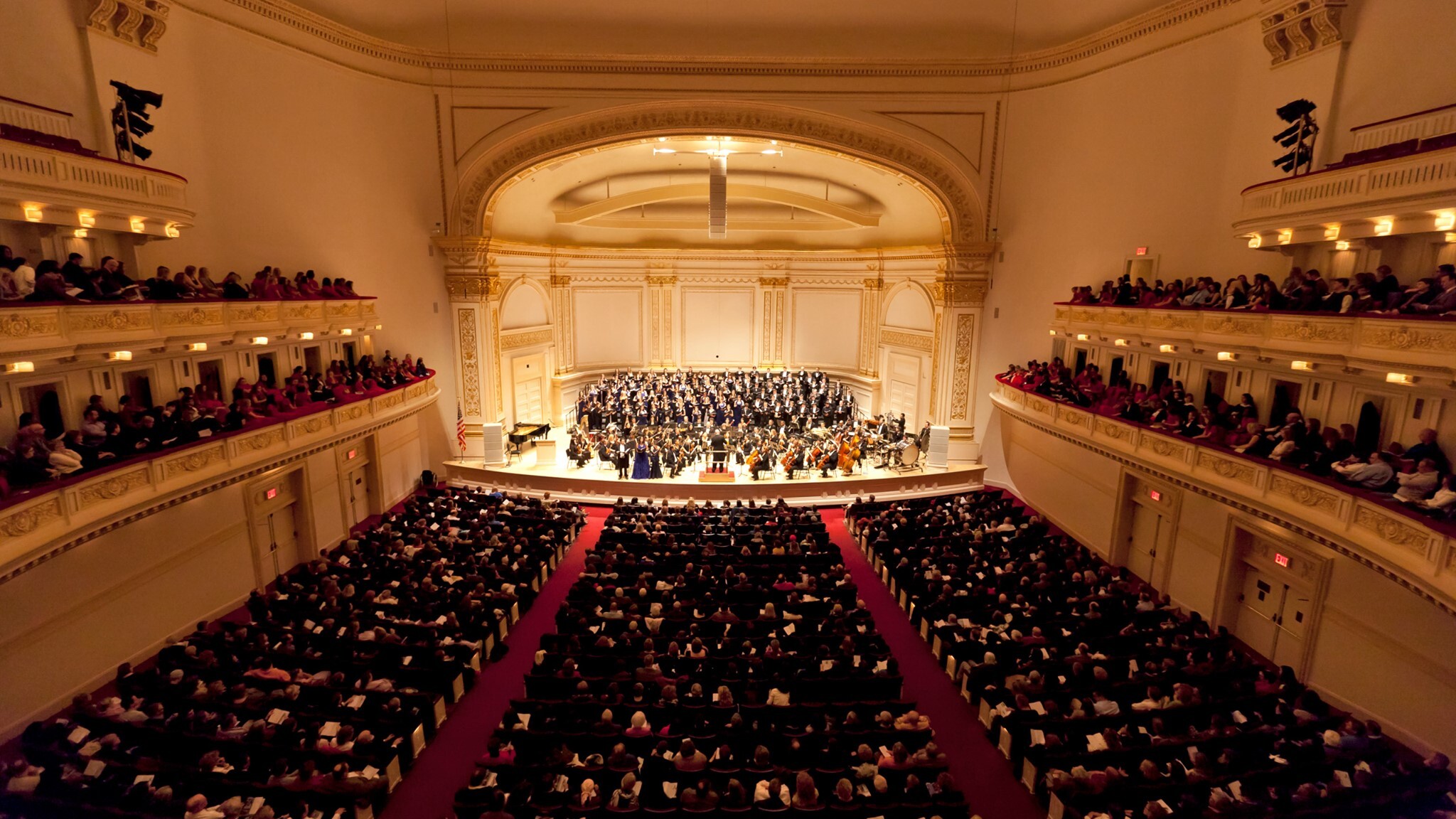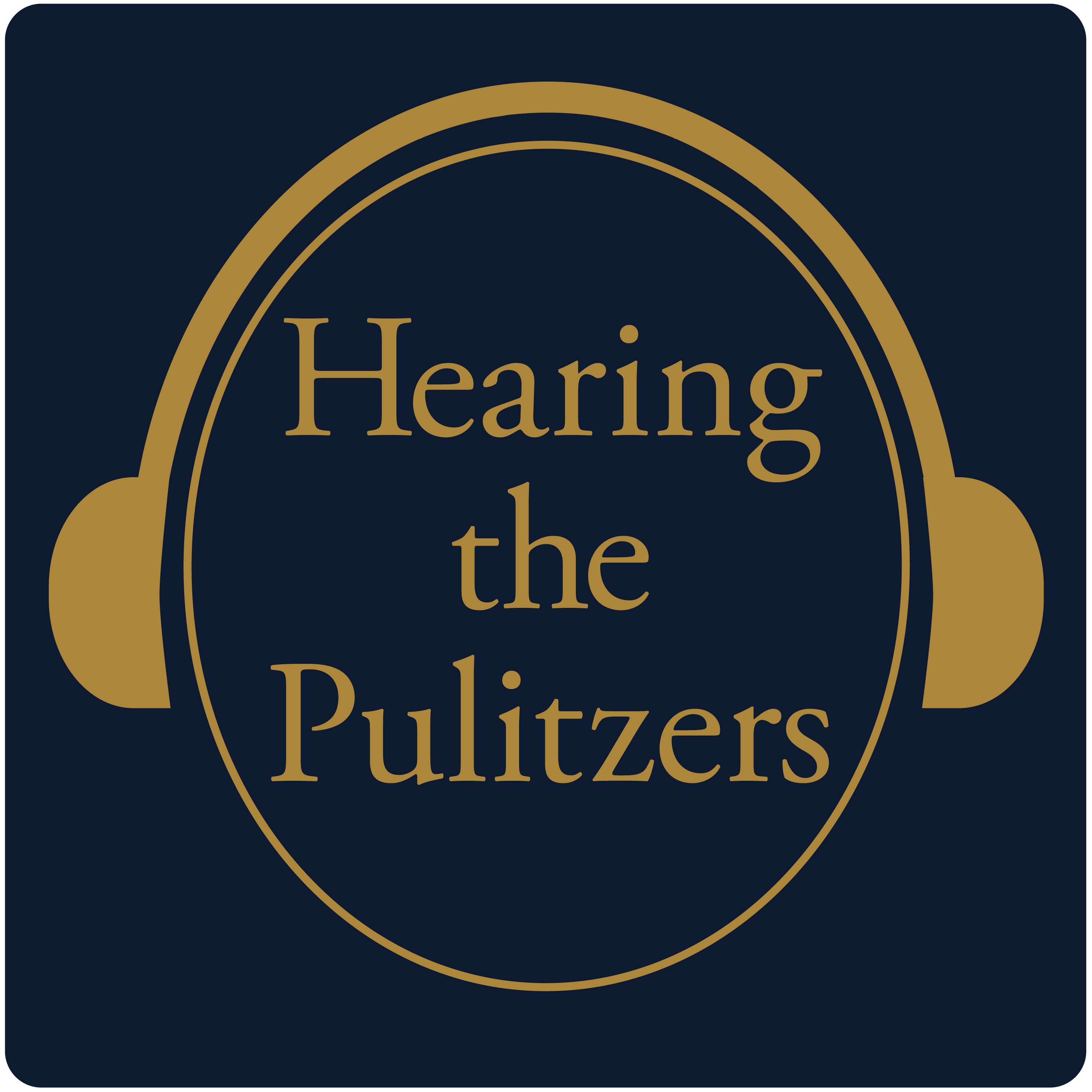Episodes
Monday May 24, 2021
Episode 19 - 1961: Walter Piston, Symphony No. 7
Monday May 24, 2021
Monday May 24, 2021
In this episode, Dave and Andrew return to Walter Piston, who first won the Pulitzer in 1948 for his Third Symphony. In 1961, not even a year into his retirement, Piston won again for his Seventh Symphony. Although Piston's music isn't performed much today, Carol Oja has argued that "From the perspective of the early 21st century, the music of Walter Piston sounds mighty appealing." Will Dave and Andrew agree?
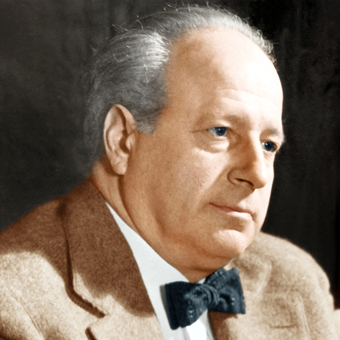
If you're interested in more information about Walter Piston's teaching, we recommend:
Monday Apr 26, 2021
Episode 18 - 1960: Elliott Carter, Second String Quartet
Monday Apr 26, 2021
Monday Apr 26, 2021
In this episode, Dave and Andrew discuss the first Pulitzer winner of the 1960s, Elliott Carter for his Second String Quartet. Carter's work has been frequently performed, widely celebrated, and heavily analyzed, but will it be a hit or a miss for our hosts?
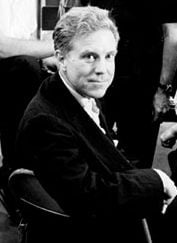
If you're interested in learning more about Carter or his Second String Quartet, we recommend:
- David Thurmaier's "'A Disturbing Lack of Musical and Stylistic Continuity'? Elliott Carter, Charles Ives, and Musical Borrowing" Current Musicology, 96 (Fall 2013), 97-124.
- Tiina Koivisto's "Multilayered Rhythms, Meter, and Notated Meter: Temporal Processes in Elliott Carter's Second String Quartet" Theory and Practice, 34 (2009), 141-171.
- Elliott Carter's website, a well-maintained source of information about his music and recent recordings and performances.
- Laura Emmery's study on the string quartets (including the 3rd, which will win the Pulitzer Prize in 1973): Compositional Process in Elliott Carter's String Quartets
Saturday Mar 27, 2021
Episode 17 - 1959: John La Montaine, Piano Concerto No. 1
Saturday Mar 27, 2021
Saturday Mar 27, 2021
In this episode, Dave and Andrew discuss John La Montaine's first piano concerto, a work that made a splash in the late 1950s only to disappear from the repertoire. Similarly, La Montaine has faded from view, so what made this work catch the Pulitzer committee's attention?
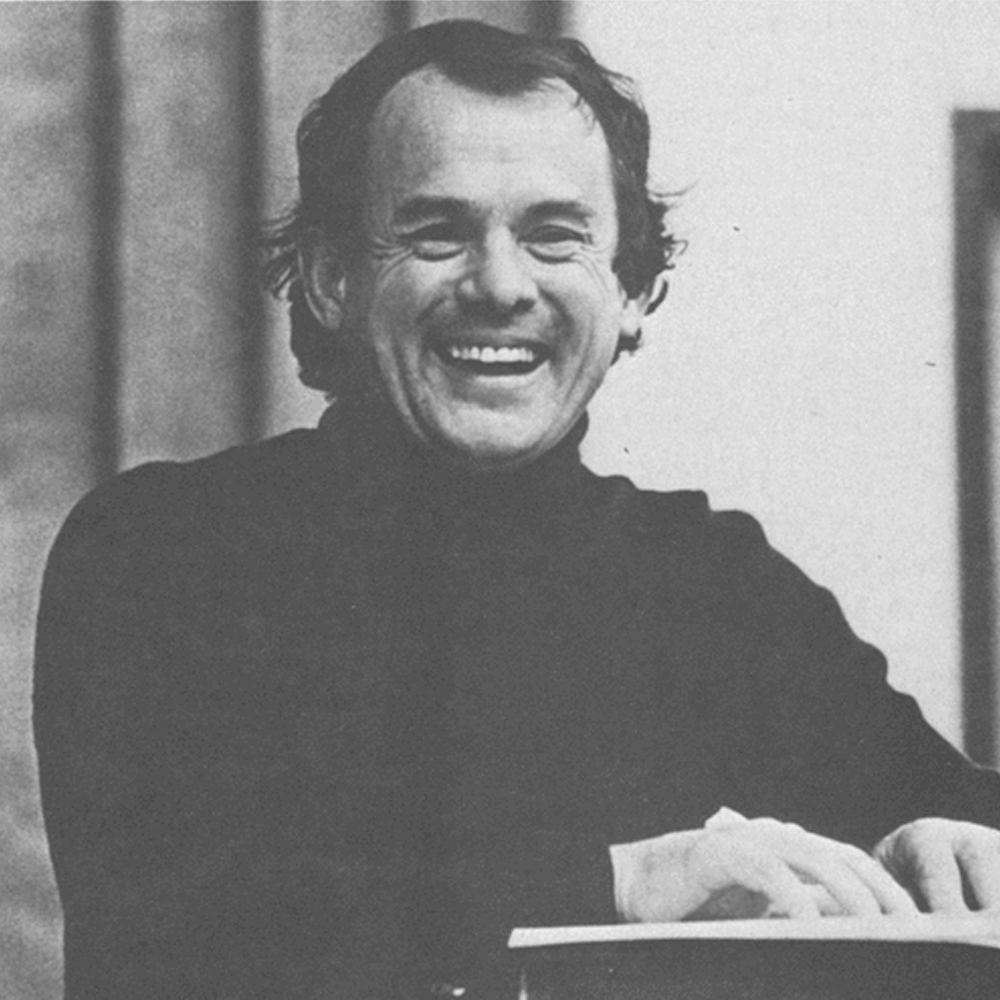
If you'd like to learn more about John La Montaine, we recommend:
- Frank Oteri's 2003 interview "Rediscovering John La Montaine"
- Bruce Duffie's 1989 interview with John La Montaine
-
Erica Beth Weintraub's article “John La Montaine: Life on the Edge” in Music Educators Journal, vol 69, no. 7 (March 1983): 41-43
Friday Mar 12, 2021
Episode 16 - 1958: Samuel Barber, Vanessa
Friday Mar 12, 2021
Friday Mar 12, 2021
In this episode, Dave and Andrew explore the fourth opera to win the Pulitzer Prize in the 1950s, Samuel Barber's Vanessa. In the mid-20th century United States, Samuel Barber was one of the most performed American composers, known especially for his beautiful vocal music that closely mirrored European models. But with the Pulitzer traditionally awarding works that are more "American" in sound, does Vanessa represent a departure from convention for Barber or the Pulitzer board?
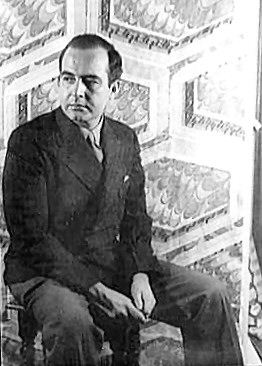
If you'd like more information about Samuel Barber or Vanessa we recommend:
- This fascinating background article in Pasatiempo by James M. Keller
- Howard Pollack's article "Samuel Barber, Jean Sibelius, and the Making of an American Romantic" in The Musical Quarterly, vol. 84, vo. 2 (Summer, 2000): 175-205
- Barbara B. Heyman's biography Samuel Barber: The Composer and His Music, 2nd edition (Oxford University Press, 2020)
- A synopsis of the opera
Friday Feb 26, 2021
Episode 15 - 1957: Norman Dello Joio, Meditations on Ecclesiastes
Friday Feb 26, 2021
Friday Feb 26, 2021
Norman Dello Joio is one of those composers you might know depending on your background. Sing choral music? You might know him from A Jubilant Song. Play in band? You might have performed his Fantasies on a Theme by Haydn. He was accomplished and prolific composer, but we did not know his Pulitzer winning Meditations on Ecclesiastes before this episode. Join Dave and Andrew as they explore if it fits into the list of winners in the 1950s or is an outlier.

If you want to know more about Dello Joio, we recommend:
- Dello Joio's website (which was last updated in 2009, but still has useful documentation on his life and career)
- Edward Downes's article "The Music of Norman Dello Joio" in
The Musical Quarterly Vol. 48, No. 2 (April, 1962): 149-172.
- Ann Meyer's interview with Norman Dello Joio published in Music Educators Journal Vol 74, Issue 2 (1987): 53-56.
Saturday Feb 13, 2021
Episode 14 - 1956: Ernst Toch, Symphony No. 3
Saturday Feb 13, 2021
Saturday Feb 13, 2021
Like Gian Carlo Menotti before him, Ernst Toch was a European composer who won an American prize. Unlike Menotti, Toch did not have the same success in the United States that he had in Europe and never fully identified as an "American" composer. Join us as we find out how his third symphony, inspired by his experience as a Jew fleeing the Nazis in the 1930s, might tell us something about Toch's place in American musical history.

If you'd like to learn more about Ernst Toch, we recommend:
- This fascinating article about Toch's experience fleeing the Nazis written by his grandson.
- Toch's Geographical Fugue, one of the first examples of "Gesprochene Musik."
- Paul A. Pisk and Manton Monroe Marble's 1938 survey of Toch's music written for The Musical Quarterly.
Friday Jan 29, 2021
Episode 13 - 1955:Gian Carlo Menotti, The Saint of Bleecker Street
Friday Jan 29, 2021
Friday Jan 29, 2021
In this episode, Dave and Andrew explore the first repeat winner of the Pulitzer Prize in Music. We covered Gian Carlo Menotti's The Consul in Episode 8 and now he's back again with The Saint of Bleecker Street. We were generally favorable toward The Consul, finding it an effective, if derivative opera. Will Menotti score another hit with this story of a young woman who displays the stigmata?

If you're interested in The Saint of Bleecker Street, we recommend:
- The original Broadway cast recording from 1954
- The TV movie version of the opera, broadcast on NBC in 1955
We also recommend exploring the Spoleto festival a bit more, both the Festival of Two Worlds held in Spoleto, Italy and the Spoleto Festival hosted in Charleston, South Carolina, USA.
Tuesday Jan 12, 2021
Episode 12 - 1954: Quincy Porter, Concerto for Two Pianos and Orchestra
Tuesday Jan 12, 2021
Tuesday Jan 12, 2021

Quincy Porter bridges many of the themes we've seen so far in the podcast: he was the last student of nineteenth-century American composer Horatio Parker (who also taught 1947 prize winner Charles Ives), he taught composition at an Ivy League school (Yale, in this case) for many years, and he was celebrated for his orchestral music during his lifetime, but is virtually forgotten today.
From that list, and from our previous episodes on Howard Hanson, Walter Piston, and Douglas Moore, you might think you have a good sense of what Porter's Ivy League New England musical style might be, but are you right? Join us to find out.
For more about Quincy Porter:
Tuesday Nov 10, 2020
EPISODE 11 - 1953: No Prize
Tuesday Nov 10, 2020
Tuesday Nov 10, 2020
It might surprise you to learn that over the past 80 years, there have been a few years when the Pulitzer Board has elected not to award a prize, even when the music committee had a recommendation. In this episode we explore the first of these "no prize" years, discuss what pieces were considered, and make a guess as to why the Pulitzer Board chose to not award a winner.
Tuesday Sep 08, 2020
EPISODE 10 - 1952: Gail Kubik, Symphony Concertante
Tuesday Sep 08, 2020
Tuesday Sep 08, 2020

As we move further into the 1950s, we're entering the doldrums of the Pulitzer Prizes, where few winners have entered the repertoire. Gail Kubik was a phenomenon in his day, writing equally well for the concert hall and the movie theatre. His Symphony Concertante began life as a film score before he extracted themes to craft this work featuring viola, trumpet, and piano. So why have you never heard of the work or, most likely its creator?
If you'd like to learn more about Kubik, we recommend:
- His delightful score for the Academy Award-winning cartoon Gerald McBoing-Boing.
- The extensive information from Kubik's archive at Kansas State University.
- Alfred W. Cochran's article "The Functional Music of Gail Kubik: Catalyst for the Concert Hall" in Indiana Theory Review, Vol. 19 (Spring/Fall 1998), 1-11
